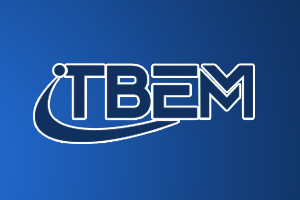How to Develop Your Personal Brand
Just like an organization’s logo or tagline, your personal brand shapes the way others perceive you, and can help to set you apart from the competition.
So, what does your personal brand say about you? Are you known for your resourcefulness, creativity or optimism?
For better or for worse, people often make snap judgments about one another. But, when you have a strong and positive personal brand, it can help you make a great first and lasting impression.
Let’s explore how you can create your own personal brand.
How do you present yourself? I don’t just mean your clothes, although a clean and tidy appearance is obviously important, but rather, how you interact with others.
Understanding how you impact those around you is key to empathy and emotional intelligence. You can grow your relationships and your influence at work by being conscious of your colleagues, making an effort to listen to them, and collaborating in a positive way. You’ll also likely develop a reputation for being positive, approachable, and even charismatic.
What makes you unique? What do you want to be known for? Is it your attention to detail, or your ability to manage projects effectively? This is your USP, your unique selling point, and it’s what will set you apart from the crowd.
To identify your USP, identify your values and strengths. Then think about how these apply to your role. What is it about your personality and experience that makes you so good at what you do? Are you a natural salesperson, for example?
Bring together your findings and write up a short, simple statement that outlines your USP. Doing this will help you gain a better understanding of yourself and what you’re good at.
The key to a successful personal brand is to be authentic. Embellishing your achievements or overselling yourself could in fact do more harm than good and earn you a reputation for being untrustworthy. Instead, own up to your weaknesses. Identify areas you need to improve and set yourself some goals based on what you want to achieve.
A truly effective brand understands its audience. Consider how your personal brand aligns with your organization’s values and beliefs. If your organization emphasizes corporate social responsibility or innovation, for example, how can you demonstrate those same values? Similarly, consider how you can show your clients, customers or investors that you care about giving them the best possible service.
Also, think about how you might establish your credentials in your professional network. Could you mentor a colleague? Share ideas or blogs on relevant industry topics? Or gain endorsements from people who’ve benefited from your expertise?
Finally, decide how you’re going to demonstrate your personal brand. For example, if you are a skilled presenter, could you build your brand by starting a podcast or creating online videos? If writing’s your strong point, could you start a blog? Whichever channel of communication you choose, keep it simple and play to your strengths.
Social media and personal websites are all great ways to establish a strong online presence, but be mindful of the content you share so that you can properly safeguard your online reputation, as well as that of your employer.
By controlling and shaping your personal brand, you’ll likely gain greater recognition, boost your visibility, and be in a great position to build quality professional networks. So, what are you waiting for? Start developing your personal brand today.














